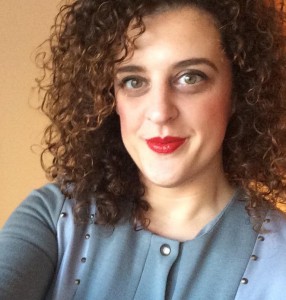 We’re letting logic kill creativity but it’s time to call a truce and accept that they should be allies. A common rhetoric over the last several years, as we have navigated our way through the economic turbulence of recession and recovery, has been that the golden age of advertising is long over. That clients are too scared, budgets are too small and agencies are either too stuck in the old or too preoccupied with the new.
We’re letting logic kill creativity but it’s time to call a truce and accept that they should be allies. A common rhetoric over the last several years, as we have navigated our way through the economic turbulence of recession and recovery, has been that the golden age of advertising is long over. That clients are too scared, budgets are too small and agencies are either too stuck in the old or too preoccupied with the new.
But none of that is true. The truth is that there’s never been a better time to work in this industry. The opportunities we have to bring our imaginations to life on behalf of our clients are greater than ever.
Why is it then, that it’s so hard to make really fantastic creative work? Why, when we look at the work that’s out there, does it not do justice to the brilliant talent of the people in Adland? We’ve allowed a war between creativity and logic to reign. Illogically we’ve let logic win.
The industry’s obsession with analysing what we do to the point of inertia means that we are killing idea generation. The notion persists that without layers and layers of rationale and logic wrapped around an idea, it is somehow a form of borderline alchemy or magic that can’t be trusted and won’t deliver results.
Does this mean then, that we shouldn’t apply logic to our work? God, no! Of course we should. Just as we should continue to apply rigour to measuring the results of what we do, so that we can test, learn and improve. So that we can prove that our work is effective.
It does mean, however, that we have to commit to not doing this at the cost of creativity. We are in the business of ideas. Of conjuring ideas out of facts, insights, anecdotes or wherever else it is they can emerge from. Of crafting ideas so that as many people as possible can share in their magic. Of using ideas to stir things in an audience that will provoke a change in attitude or behaviour.
But we’re killing them with endless reason and rationality, in an effort to convince each other ahead of time that they will work. Then we apply the same obsession with rationality to how we bring those ideas to life.
Ironically though, the most creative work has consistently been proven to be the most effective. We ought to hold on to this thought and stop pitting creativity and effectiveness against one another. What does this mean for the work? Sell less and matter more.
We can’t reason people into buying products. We can’t reason people into caring about our brands and our ideas. Instead we have to bring ideas to life in ways that matter to them. Ways that make them want to spend time with those ideas.
Incite feelings.
What we do is incidental to most people’s lives. We can combat this most effectively by championing ideas and creating work that makes people feel things. By making advertising that entertains people. By making advertising that stirs emotions. Stop insisting that the audience is the cast.
To bring ideas to life and make sure that they resonate with our audiences, our industry has developed a habit of showing the audience we want to talk to within the work itself . The thing is that we don’t need to do this. It’s not creative. We can use gorillas to sell chocolate, bouncing rubber balls to sell TVs or Jean-Claude Van Damme doing the splits to sell trucks.
We work in one of the most exciting and inspiring industries in the world and creativity is at the heart of that. So let’s obsess about that just as much as the logic. At the end of the day, creativity translates into effectiveness far more than logic alone does.
Dena Walker is Head of Advertising at Irish International, where she combines strategic savvy with a passion for creativity to champion brilliant, effective, work for the agency and its clients.
First published in Irish Marketing Journal (April 2015)© to order back issues please call 016611660



















